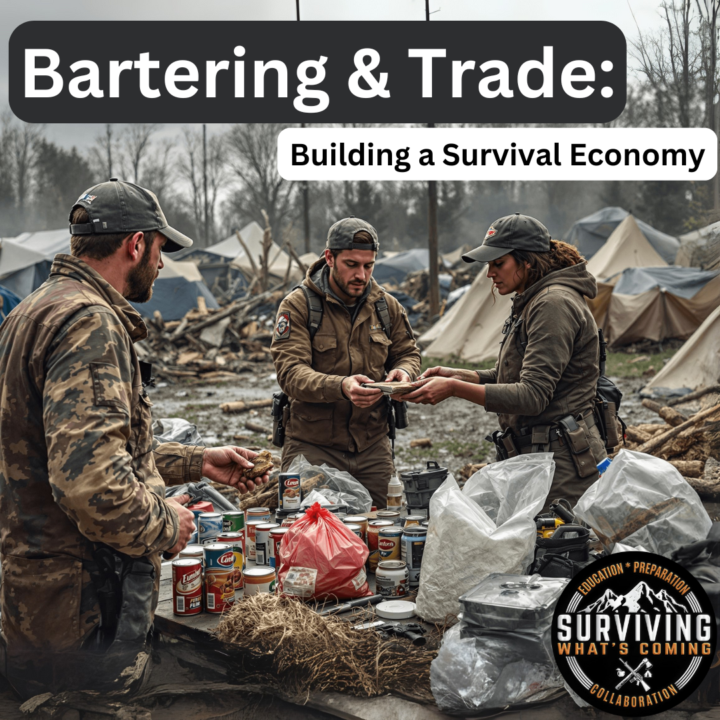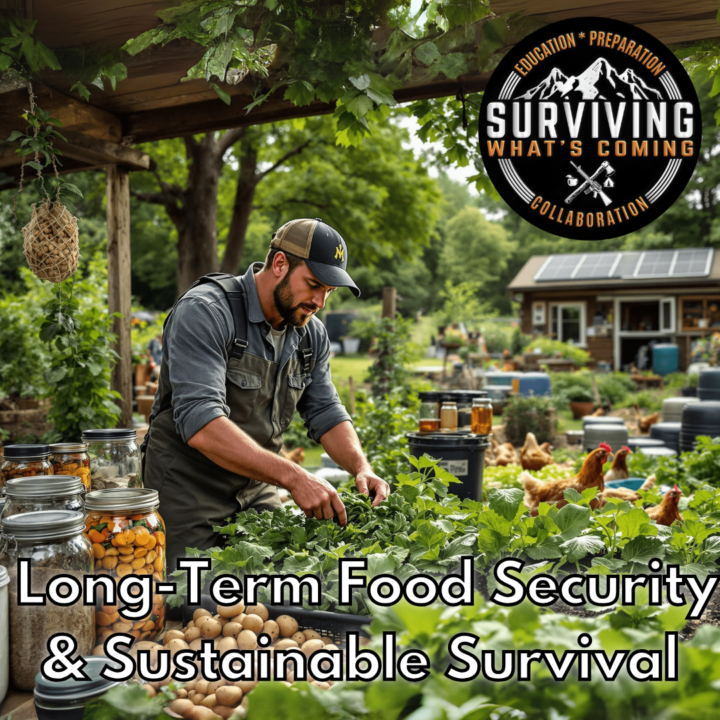
Write something
Pinned
Hey Guys👋!
"Welcome to Surviving What’s Coming! I’m Coach Dex, and I’m here to help you prepare for any emergency life throws your way. Whether you’re just starting out or a seasoned prepper, this is your space to learn, share, and grow together. Take a quick second out to introduce yourself to the other members in the comment section. To make sure you don’t miss any important updates, new posts, or announcements, be sure to enable push notifications in Skool! This way, you’ll get notified right away when new content goes live. How to Enable Push Notifications: 1. Click on your profile icon in the top right corner. 2. Go to Settings. 3. Find the Notifications section. 4. Toggle on Push Notifications to stay up to date! By enabling notifications, you'll never miss out on new content, challenges, and community discussions. Let’s stay connected and prepared.🛡️ Also, let me know in the comments what you would like to learn here. We're gonna do this together and make this the best community on Skool! Can't wait to meet you all!" Coach Dex
5
0

Beginner Prepper’s Journey: Week 13 – Bartering & Trade: Building a Survival Economy
Welcome to Week 13: When Cash is Useless, Skills & Supplies Rule Congratulations on making it to another week of your prepping journey! As you continue to grow your preparedness mindset, it’s time to shift focus from just personal survival to economic survival. In a true crisis, when banks close and paper money loses value, barter and trade become the new economy. This week, we’ll teach you how to identify what holds value, what to trade, and how to stay safe while doing it. Why Bartering Matters in a Collapse - Money may lose value overnight in a crisis. - Supplies and skills become the new currency. - Building a survival economy helps you and your community thrive, not just survive. Tasks for Week 13 1. Identify Valuable Barter Items - Focus on high-demand, low-supply essentials: - Make a list of what you have to spare and what you’d be willing to trade. 2. Inventory Your Skills as Barter Assets - What skills do you have that are useful in a crisis? - Practice and improve one barterable skill this week. 3. Create a Barter Kit - Store small tradeable items in organized, waterproof containers. - Include common sizes (like travel-sized hygiene items or mini lighters) for easy trading. - Keep your kit accessible but protected—you don’t want it to be stolen. 4. Practice Trade Scenarios - Create mock barter deals with your household or preparedness group. - Learn to negotiate without giving away desperation. - Practice trading with trust but always stay cautious—security comes first. 5. Build Your Local Trade Network - Know who in your area is a resource. Can you exchange food for repair work? Training for gear? - Start forming discreet connections now—you won’t want to scramble when SHTF. The Outcome: Why This Matters for You ✅ Survive the Collapse – When money means nothing, you’ll have what people actually need. ✅ Leverage Your Value – You’ll trade supplies or skills to get what you don’t have. ✅ Build Community Resilience – Preparedness is powerful alone—but unbeatable together.
0
0

Something to consider
https://www.instagram.com/reel/DHGXd2iNkXj/?igsh=MXJ6dHM2b2lsc3hvcA==
Beginner Prepper’s Journey: Week 12 – Long-Term Food Security & Sustainable Survival
Welcome to Week 12: Beyond Stockpiling – Creating a Long-Term Food Plan Over the past 11 weeks, we’ve focused on building a strong foundation in preparedness, from security to self-defense. But food storage alone won’t sustain you forever—true survival requires long-term food security strategies. This week, we’re focusing on sustainable survival—how to create food systems that last. Why Long-Term Food Security is Essential - Stockpiles run out – Even the best food storage plan has limits. - Supply chains are fragile – When disaster strikes, stores empty fast. - Self-sufficiency = true freedom – Growing, preserving, and producing your own food ensures long-term survival. Tasks for Week 12 1. Take Inventory & Extend Shelf Life - Check your current food stockpile—what’s missing? - Rotate your supplies—use the FIFO method (First In, First Out). - Start adding long-term storage foods like freeze-dried meals, rice, beans, and powdered milk. 2. Start Producing Your Own Food - Gardening – Learn to grow high-calorie survival crops (potatoes, squash, beans, corn). - Microgreens & Indoor Growing – Even small spaces can produce nutrient-dense foods. - Livestock & Protein Sources – Consider chickens, rabbits, or even fishing as sustainable protein options. 3. Master Food Preservation Techniques - Canning & Pickling – Preserve fruits, vegetables, and meats for long-term storage. - Dehydrating & Freeze-Drying – Extend the shelf life of meats, fruits, and full meals. - Fermentation – Probiotics improve gut health and add diversity to your survival diet. 4. Learn & Test Cooking Without Power - Solar Ovens & Rocket Stoves – Cook meals without gas or electricity. - Off-Grid Baking – Learn to make bread using Dutch ovens and campfire cooking. - Wild Foraging & Alternative Food Sources – Learn to identify local edible plants and mushrooms. 5. Strengthen Your Food Defense Plan - Keep food storage discreet—don’t advertise your supply. - Create a layered security plan for protecting livestock and garden crops. - Stock up on heirloom seeds—they reproduce year after year, unlike hybrids.
0
0

1-30 of 113
powered by

skool.com/surviving-whats-coming-6547
"Join Surviving What's Coming for expert prepping tips, exclusive guides, and community support to stay prepared for any emergency."
Suggested communities
Powered by


